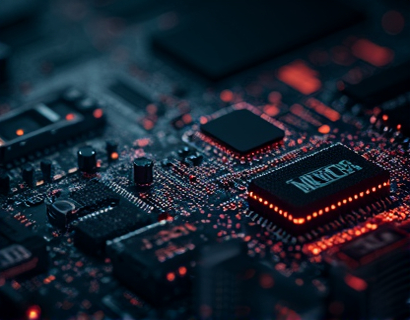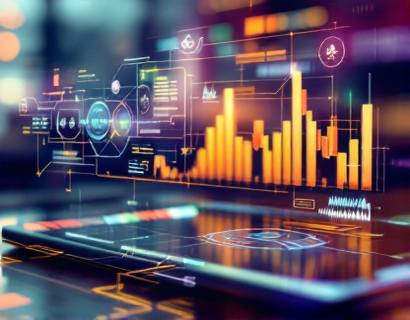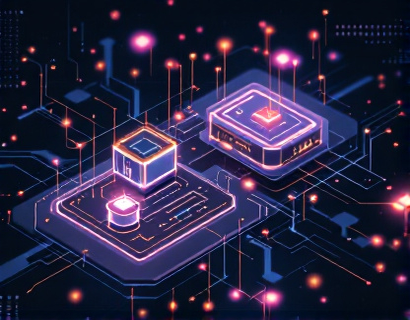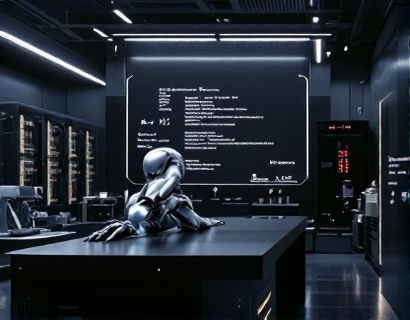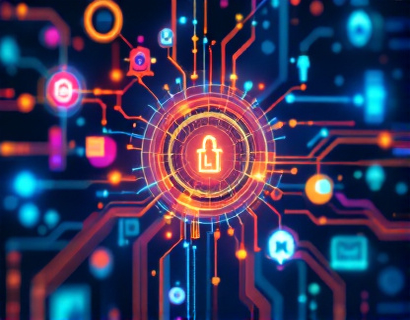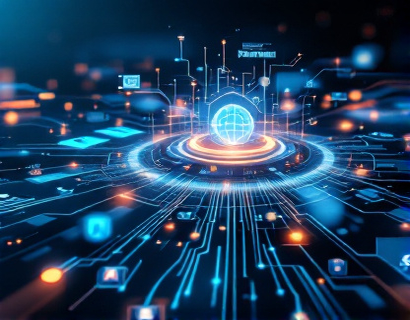Unleashing Next-Gen Productivity: The Synergy of Crypto and AI
The intersection of cryptocurrency and artificial intelligence (AI) is giving rise to a new era of digital solutions that promise to revolutionize how we approach productivity and innovation. This fusion is not just about combining two cutting-edge technologies but about creating a synergistic effect that enhances efficiency, security, and user experience. For tech professionals and enthusiasts, understanding and leveraging this synergy can open up a world of possibilities, making tasks easier, more secure, and more rewarding.
Understanding the Basics
To fully appreciate the potential of crypto and AI, it's essential to grasp the fundamentals of both technologies. Cryptocurrency, at its core, is a digital or virtual currency that uses cryptography for security and operates on a decentralized network, typically a blockchain. This decentralized nature ensures transparency, immutability, and reduces the need for intermediaries, which can lower transaction costs and increase speed.
Artificial intelligence, on the other hand, involves the simulation of human intelligence processes by machines, particularly computer systems. These processes include learning (the acquisition of information and rules for using it), reasoning (using rules to reach approximate or definite conclusions), and self-correction. AI can operate through various subsets, including machine learning, natural language processing, and computer vision, each contributing uniquely to the tech landscape.
Enhancing Security with Crypto
One of the most significant advantages of integrating crypto into AI applications is enhanced security. Blockchain technology, the backbone of most cryptocurrencies, provides a secure and transparent ledger for transactions. This can be particularly beneficial in AI systems that handle sensitive data, such as personal information or financial transactions. By using blockchain, AI applications can ensure that data is tamper-proof and that transactions are verifiable, reducing the risk of fraud and data breaches.
Moreover, smart contracts, self-executing contracts with the terms directly written into code, can automate and enforce agreements without the need for intermediaries. This not only speeds up processes but also minimizes the potential for human error and manipulation. For instance, in supply chain management, smart contracts can ensure that payments are made only when specific conditions are met, such as the delivery of goods, thereby increasing trust and efficiency.
Optimizing AI with Cryptocurrency
Cryptocurrency can also play a crucial role in optimizing AI systems, particularly in terms of funding and incentivization. Traditional funding models for AI research and development can be slow and bureaucratic, often leading to delays and inefficiencies. By using cryptocurrencies, projects can access a global pool of funds more quickly and transparently. This can accelerate the development and deployment of AI solutions, allowing for faster innovation and better problem-solving.
Additionally, cryptocurrencies can serve as a means of incentivizing contributors to AI projects. For example, in decentralized AI platforms, developers and data providers can be rewarded with tokens for their contributions. This token-based incentive system aligns the interests of various stakeholders, encouraging more participation and higher quality contributions. It also creates a more democratic and community-driven approach to AI development.
Improving Data Management
Data is the lifeblood of AI, and effective data management is crucial for the success of AI applications. Crypto technologies, particularly blockchain, offer robust solutions for data management. By using blockchain, AI systems can ensure data integrity and provenance, meaning that the origin and history of data can be traced and verified. This is particularly important in industries like healthcare and finance, where data accuracy and compliance are paramount.
Furthermore, decentralized data storage solutions, such as IPFS (InterPlanetary File System), can be integrated with blockchain to create a more resilient and secure data infrastructure. These solutions allow data to be stored across a network of nodes, reducing the risk of data loss and increasing accessibility. For AI applications that require large datasets, this can significantly enhance performance and reliability.
Enhancing User Experience
The combination of crypto and AI can also lead to more personalized and secure user experiences. AI-driven analytics can process vast amounts of user data to provide insights and recommendations, making services more tailored to individual needs. For example, in content recommendation systems, AI can analyze user behavior and preferences to suggest relevant articles, products, or services. When combined with crypto, these systems can ensure that user data is handled securely and that users have control over their data through mechanisms like self-sovereign identity.
Self-sovereign identity, powered by blockchain, allows users to manage their digital identities independently, giving them more control over their personal information. This can enhance user trust and satisfaction, as individuals can choose what data to share and with whom, without relying on centralized entities. AI can further enhance this experience by providing seamless and secure authentication methods, such as biometric verification, ensuring that only authorized users access sensitive information.
Automating Processes with AI
AI's ability to automate repetitive and time-consuming tasks can significantly boost productivity across various industries. In business operations, AI can streamline processes such as customer service, data analysis, and financial forecasting. For instance, chatbots powered by natural language processing can handle customer inquiries 24/7, reducing the workload on human agents and improving response times. AI-driven analytics can process large datasets to identify trends and patterns, enabling businesses to make data-driven decisions more efficiently.
In the financial sector, AI can automate trading strategies, risk assessment, and compliance checks. Smart contracts on blockchain can execute transactions based on predefined conditions, reducing the need for manual intervention and minimizing errors. This not only speeds up processes but also increases accuracy and reduces costs.
Fostering Innovation through Collaboration
The synergy between crypto and AI fosters a collaborative ecosystem where developers, researchers, and users can work together to push the boundaries of what's possible. Open-source projects and decentralized platforms encourage transparency and collaboration, allowing for rapid iteration and improvement. This community-driven approach can lead to more innovative solutions and faster adoption of new technologies.
For example, decentralized AI platforms like SingularityNET allow developers to create, deploy, and monetize AI models in a trustless environment. This platform uses blockchain to ensure that AI services are secure, transparent, and reward contributors fairly. Such initiatives not only accelerate AI innovation but also democratize access to advanced technologies, enabling a broader range of participants to contribute and benefit.
Challenges and Considerations
While the integration of crypto and AI offers numerous benefits, it also comes with challenges that need to be addressed. One of the primary concerns is the regulatory landscape. Cryptocurrencies and AI are still evolving, and regulations vary widely across different jurisdictions. Businesses and developers must navigate these regulations carefully to ensure compliance and avoid legal issues.
Another challenge is the technical complexity involved in integrating crypto and AI. Developing secure and efficient systems requires a deep understanding of both technologies, which can be a barrier for some organizations. Education and training are essential to build a workforce capable of harnessing the full potential of this fusion.
Additionally, there are environmental concerns related to the energy consumption of blockchain networks, particularly those using proof-of-work consensus mechanisms. The crypto community is actively exploring more sustainable alternatives, such as proof-of-stake, to mitigate these impacts. As the industry evolves, finding a balance between innovation and sustainability will be crucial.
Future Prospects
The future of crypto and AI is bright, with numerous opportunities for growth and innovation. As technology advances, we can expect to see more sophisticated applications that combine the strengths of both fields. For instance, the development of AI-powered blockchain analytics can enhance the monitoring and management of blockchain networks, improving scalability and security.
Moreover, the integration of AI with other emerging technologies, such as the Internet of Things (IoT) and 5G, can create a more interconnected and intelligent world. Smart cities, for example, can leverage AI to optimize resource management and enhance public services, while blockchain ensures secure and transparent data exchange.
For tech professionals and enthusiasts, staying informed about the latest developments in crypto and AI is essential. By embracing these technologies and understanding their potential, individuals can position themselves at the forefront of the next digital revolution, driving innovation and creating value in a rapidly changing landscape.




